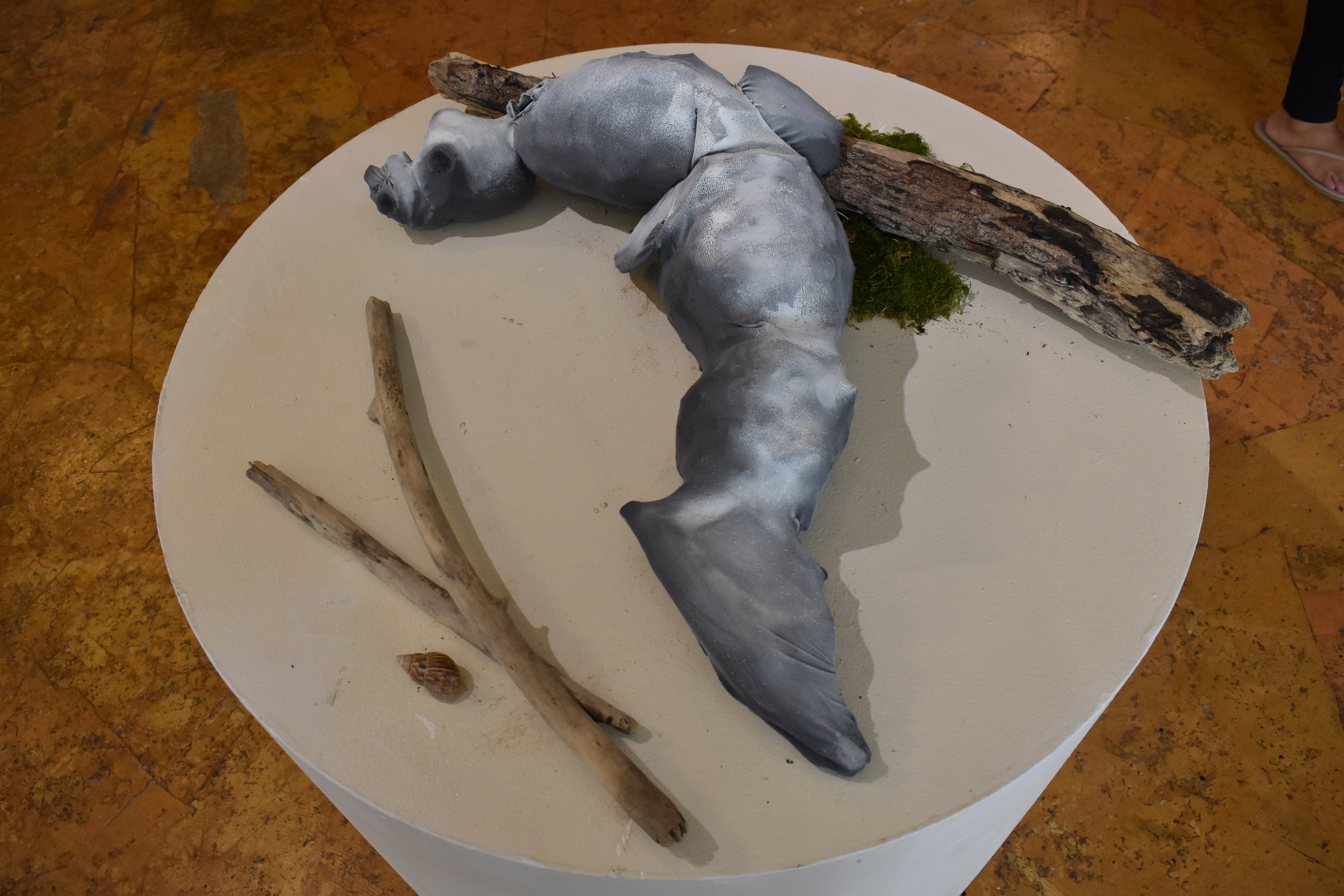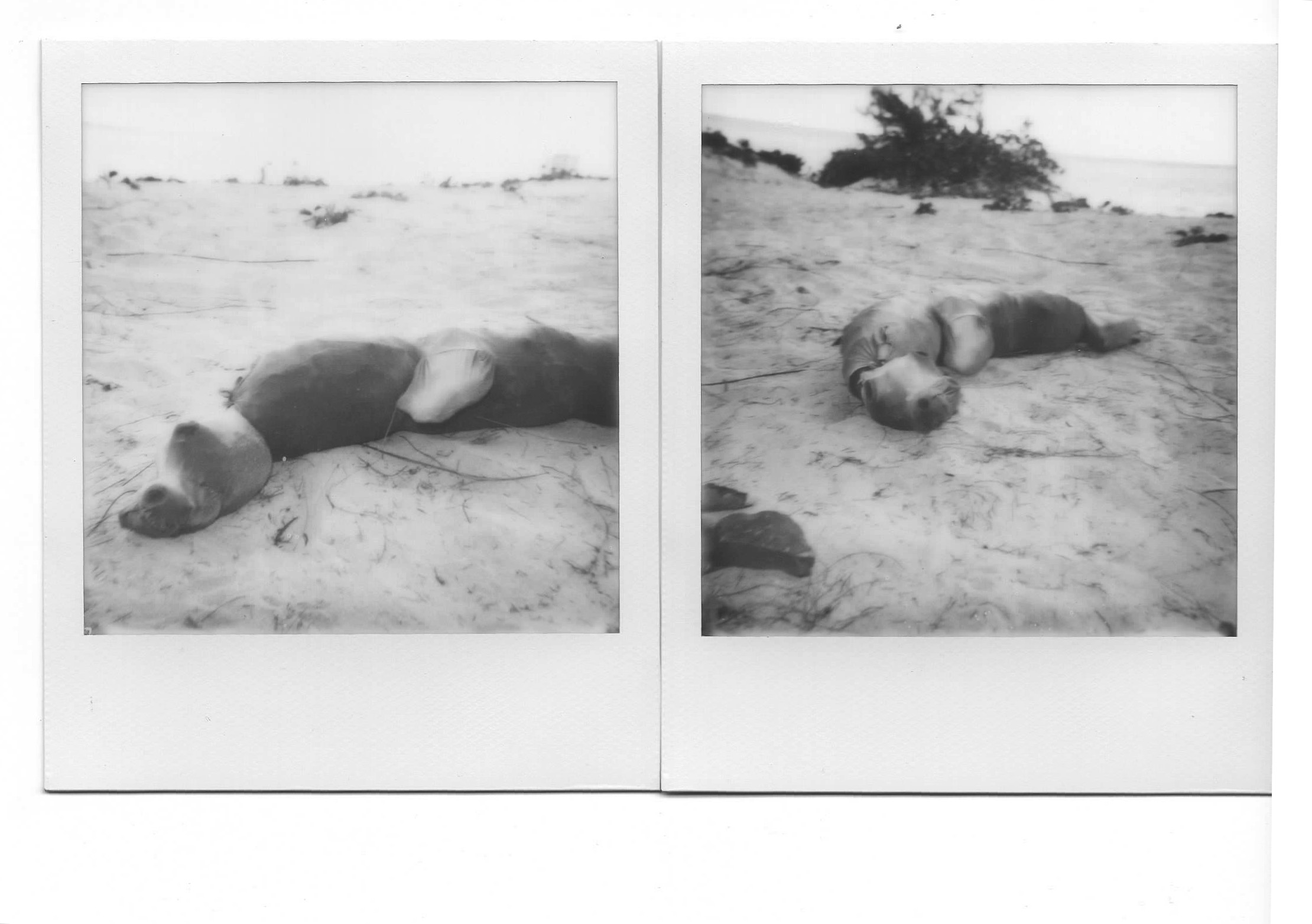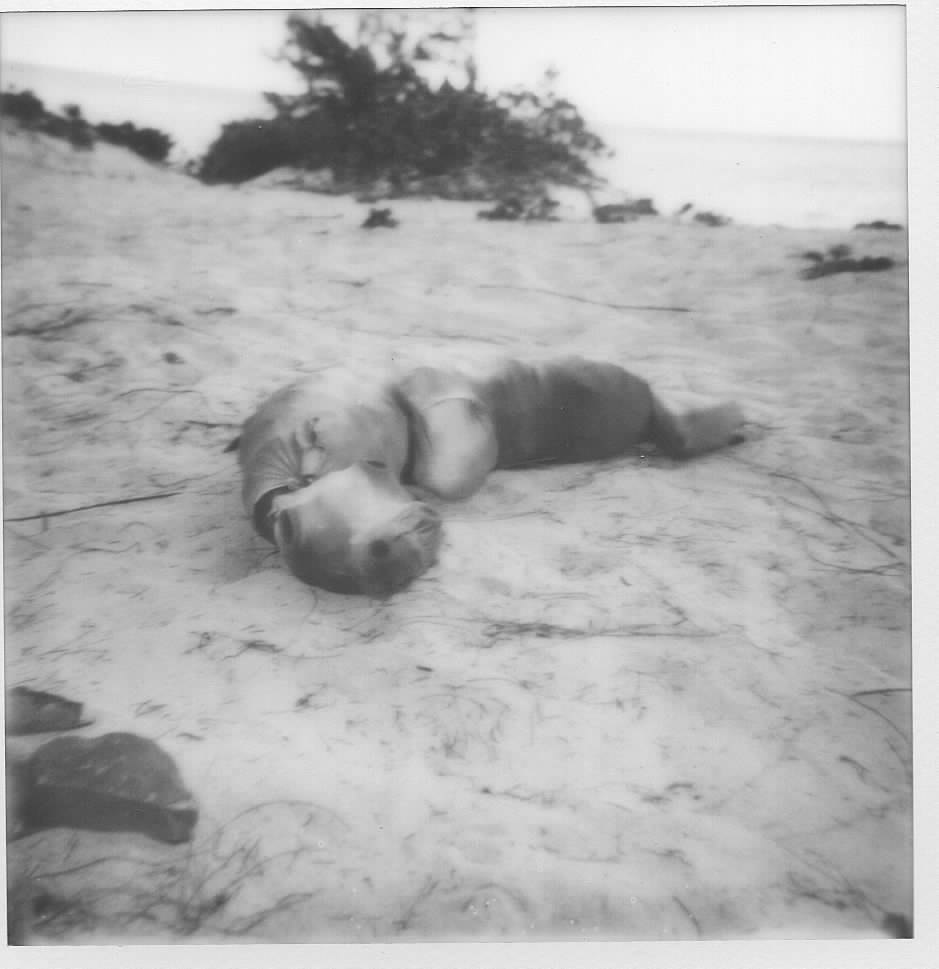
The Caribbean Monk Seal
Found microplastic and marine debris, nylon stocking, glue, acrylic paint

Observing Caribbean 'sea wolves' on the coast of Santo Domingo in 1494, Christopher Columbus promptly ordered his crew to kill eight of the animals for food, paving the way for exploitation of the species through the 20th century, with hunters sometimes killing as many as a hundred seals in a night.

The seals were documented as being easily approachable and not aggressive.

According to the notes from a zookeeper at the New York Aquarium, these playful seals had a habit of spraying water from their mouths at visitors who leaned in too close over the railing.

The Caribbean monk seal was formally declared extinct in the 1996 IUCN Red List of Threatened Animals.

The last reported sighting in 1952 was from Seranilla Bank between Jamaica and Honduras, where a small colony was known to have lived.




